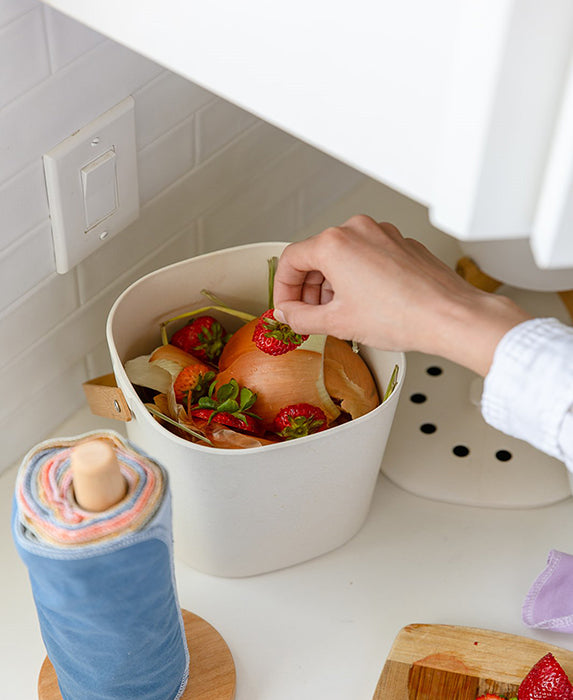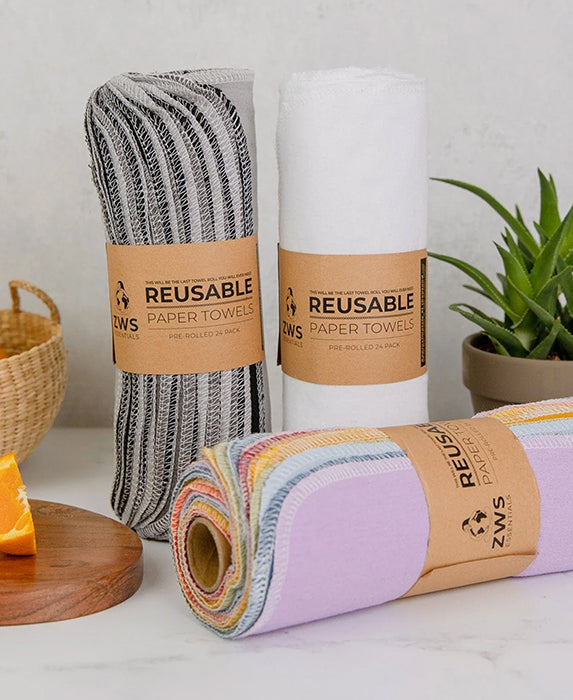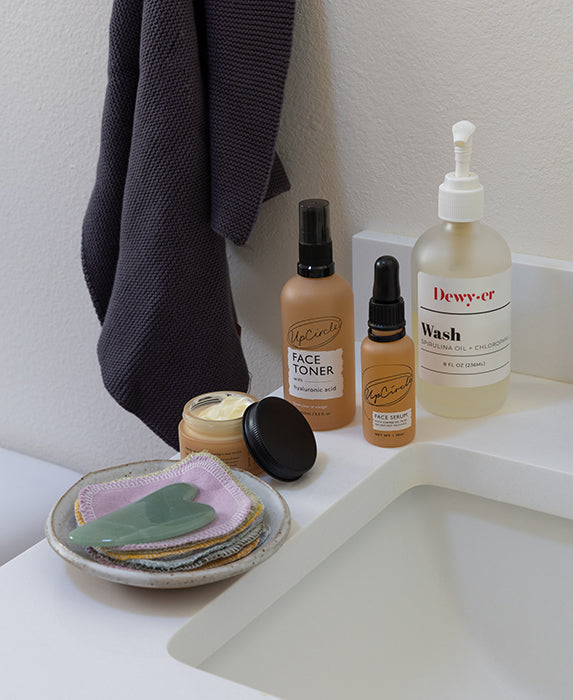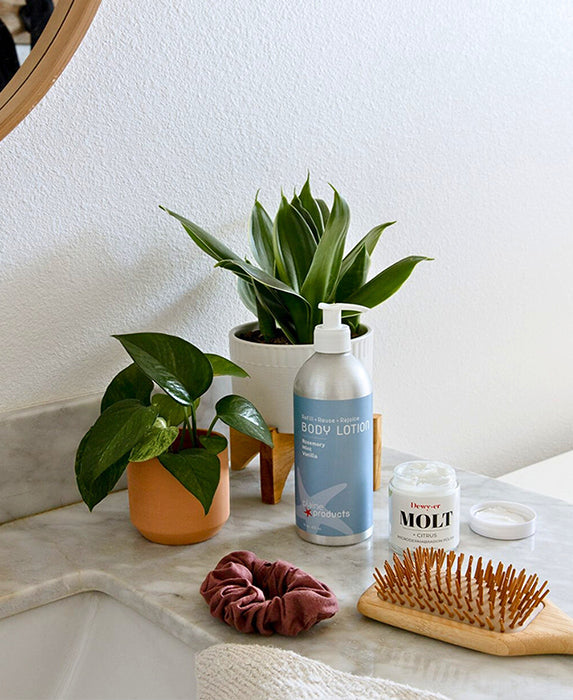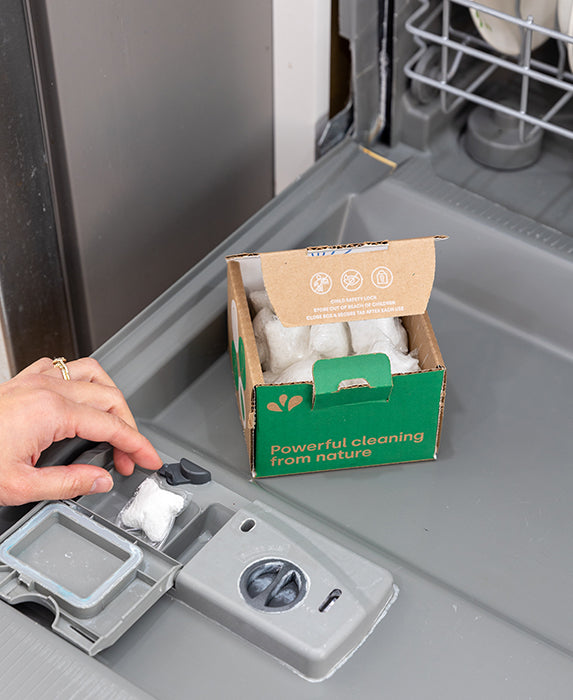We all want to help our planet stay as beautiful and healthy as possible, but sometimes it’s hard to figure out just how to go about doing that. We’ve heard that shopping sustainably is a step in the right direction, but what does shopping sustainably really entail? What actually makes something sustainable?
When considering whether or not a product makes the cut, it’s important to look at the entire life cycle–not just one section of it. What kind of materials were used? How does it impact the community where it’s produced? How does the company benefit others? What happens when it’s thrown away?
There are a ton of complex definitions and confusing guidelines out there. It can be hard to find time to sort through it all! We’ll try and make life a little easier for you. Here are four important questions you should ask when shopping sustainably:
What’s it made of?

Materials play a huge role in setting a sustainable product apart from the rest. The goal of producing sustainably is to create products that satisfy the needs of today, without threatening the demands of tomorrow. In order to do this, sustainable products use materials that are kind to the earth, not damaging.
Keep an eye out for organic, recycled and upcycled materials when shopping. Organic materials require no chemical pesticides or fertilizers, which can deplete soil health and harm local ecosystems. These chemicals also create an unsafe environment for farm workers. On the other hand, recycled or upcycled materials replace new materials that would otherwise be made, while saving items from entering the landfill.
How’s it made?

On the most basic level, the tools used to manufacture a product matter. A shirt made from 100% recycled material, yet made by inefficient, petroleum powered machines, isn’t promoting sustainability. Look for companies who are using innovative production methods, or powering their offices and warehouses with renewable energy. Find companies that pledge to cut down on waste, and that reuse or recycle whenever possible.
This concept, however, applies to more than just how a product is physically produced. It also has to do with the production environment, including a company’s employees, culture and values. Sustainably-focused companies create their products in socially responsible ways, in environments that treat employees well. These companies both encourage sustainable lifestyles for their employees, while providing safe and fair job opportunities to their communities.
It can be difficult to find this information about each company you buy from, but it’s worth looking into! Some quick research on credible, environmentally-responsible websites can increase your knowledge, empowering you to make a positive difference by shopping sustainably.
What’s the give back?

In addition to how companies are creating their products, it’s helpful to look into the ways in which they give back to the community or to sustainable causes. One easy way to spot these companies is to look for those who are part of 1% for the Planet. All 1% for the Planet business members pledge to donate 1% of their sales to environmentally focused non-profits.
Similarly, some companies work directly with organizations that benefit the communities where their products are made. Other businesses have taken the next step and created their own charitable foundations. When shopping sustainably, you can also look for brands who donate products or plant trees for every product they sell.
Before making a purchase, do a quick online search to see which of the companies you’re considering have gone above and beyond. Most companies will proudly present this information, so you won’t need to look far!
What’s its end-of-life impact?

A product’s afterlife is just as important as its creation. When non-sustainable products end up in landfills, they can seriously damage the environment. As products pile up, these landfills quickly become hubs for toxic materials and cause harm to the environment, people, and animals around it. Landfilled products also can’t be reused, so more harmful products will be created from scratch in order to replace them.
In contrast, when sustainable products reach the end of their lives, we can dispose of them in environmentally responsible ways. Thanks to their makeup, many can live on through the production of even more sustainable products. Sustainable products will continue to promote the Earth’s health for years after you’re finished with them! Look for companies with “take back” programs, or contact your local recycling facility to find the best way to pass on your well-loved items.
We get it, life is hard! While we all want to do things that help promote a better world, it isn’t always clear how we should do so. The internet can be extremely helpful, but it can also be really overwhelming. Next time you’re shopping, just try and keep these four things in mind. Even if a product only satisfies one of these criteria, buying that product over a completely unsustainable product can make a difference. It sends a signal to companies about your values, and helps to promote positive change in our world.

